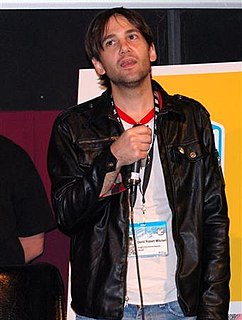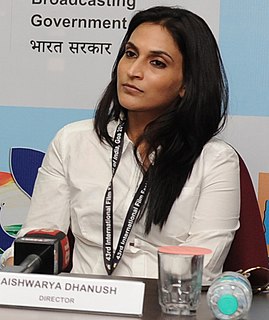A Quote by Jeremy Renner
I need to react to a script, to feel strongly about it in some way. And I need it to be a complex character for sure. And also, I think a lot about what kind of audience there is for the film, what they're looking for and ways to connect with them in the playing of a character.
Related Quotes
It's just about having faith in what I wrote and following through on the plan and making sure I get the pieces the way that I need them. It's just about executing properly in production and then in post, you know, it's working [with] and trusting my editor, and then also playing the film for people and seeing how they react.
The first thing that happens is the cleansing of the former character. I don't think a lot of actors talk about it, but there is usually a process where you essentially purge yourself of the character played prior to the movie. Then you want to think about what the character represents, and you write down all of the elements about this character and then take the time to find some synchronicity and start breathing the character.
I always tell myself that when you're playing a character, pretend they're on trial and you're giving the best witness of their life. You really need to think about every element of the character and represent them properly, as if they were a real person. You want to give 100 percent of what they're worth and what they deserve as people.
If I'm reading a script, and I'm not buying it, I need to be able to relate to the character on some level, and they need to have more than one dimension. I need to have an idea of what this guy's thinking about when he's taking a shower not on camera. And if I can't picture him taking a shower and getting dressed, then he's not a real person.
You're in a movie, so you have to think about how something plays. It's not like you're thinking about how an audience is going to react. You're trying to present the story. You're trying to illuminate the lives of these people in the story. So I'm thinking about how my behavior as this character best illuminates what's going on with them in this moment in time. I always say it's sort of the director's job. People think that the directors direct actors. No. Really, what the director's doing is directing the audience's eye through the film.
The only way to resonate at a level that persuades is to know who you are addressing. If it's true that the Audience is the hero, you need to spend time thinking about them. Really getting to know them to the point it feels like they are a friend. May times we picture our audience as a large clump of strangers. Instead, you need to picture them as individuals standing in line to have a personal conversation with you. It's easy to persuade a friend, you need to think about your audience until you know them as a friend.
No matter what character your play. I feel like whenever anyone is honest and whole and well-written, you're going to be able to connect to that person because we're all kinda made up of the same stuff and I think that's always one of the really powerful things about approaching each individual character and role and film.




































